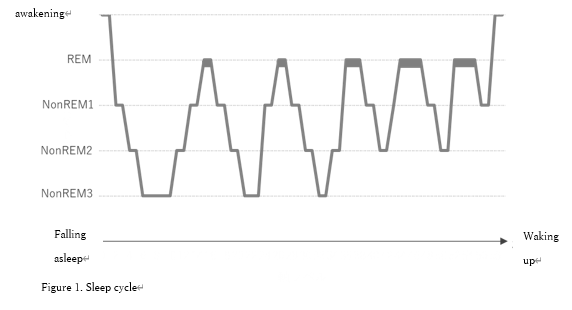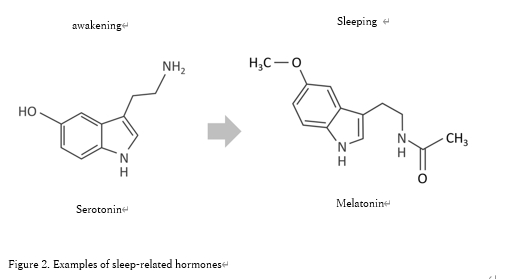Brain chemicals involved in sleep and waking
Many physiologically active substances are involved in the regulation of sleep and waking, and the following is a list of typical brain substances.
・Melatonin, serotonin
Melatonin is the hormone best known for leading to sleep. Its secretion is inhibited by light entering the eyes, so it is less secreted during the day and more at night, leading to drowsiness. It is synthesized from a hormone called serotonin, but serotonin works in the opposite direction, promoting waking.
・orexin
Most of us are active continuously during the day and go to sleep at night. One of the important substances for maintaining this daytime wakefulness is a nerve substance called orexin. When orexin is not working, we become sleepy even in important or tense situations when we should be.
Many other substances, including acetylcholine and cortisol, are also involved in sleep. Many other substances, including acetylcholine and cortisol, are also involved in sleep. Figure 1.

